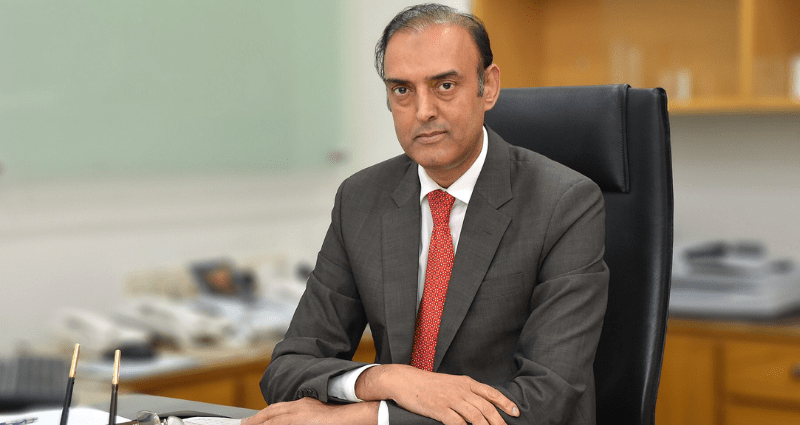Multan ( Web News )
A meeting of the Agricultural Credit Advisory Committee (ACAC) was held in Multan under the auspices of the State Bank of Pakistan, reaffirming the commitment to boost growth in Pakistan’s agricultural sector in a sustainable manner and promoting agricultural production. During his address, Governor of the State Bank, Jameel Ahmed, highlighted the crucial role of agriculture in Pakistan’s economy, emphasizing its importance in ensuring food security, creating employment opportunities in rural areas, and its connection to the industrial and services sectors.
Acknowledging the ongoing challenges faced by the agricultural sector, such as low productivity, the impact of climate change, and limited financial inclusion, he urged banks to prioritize agricultural loans as a core and viable business line. The Governor further stated that the agricultural sector had shown remarkable growth during FY24. However, in the first quarter of FY25, agricultural growth remained at 1.2%, down from 8.1% in the previous year, thus slowing the GDP growth to 0.9%, compared to 2.3% in the first quarter of FY24. The wheat crop is expected to remain moderate, underscoring the need for innovation and resilience in the sector to achieve sustainable growth.
He mentioned that, through joint efforts by the State Bank and banks, a record Rs 2.216 trillion in loans were disbursed in FY24, marking a 25% annual increase. Maintaining this momentum, loans worth Rs 1.266 trillion were disbursed in the first half of FY25, with the number of borrowers rising slightly to 2.86 million. The Governor instructed banks to increase their presence in rural areas to expand the number of small borrowers, particularly in underserved and semi-underserved areas. He also urged banks to allocate more branches for agricultural loans and appoint additional Agricultural Credit Officers.
Looking ahead, Governor Jameel Ahmed emphasized that banks should fully implement their plans for expanding agricultural loans and invest in human resources, infrastructure, and digital technologies to provide better services to farmers. He also encouraged financial institutions to collaborate with relevant government departments, fintech companies, microfinance institutions, and agricultural technology companies to offer digital loan facilities and advisory services tailored to the specific needs of small farmers.
To improve the agricultural sector, the Governor outlined three key areas of focus for stakeholders. First, targeted strategies are needed to address the challenges posed by climate change, reduce risks, and promote climate-smart agriculture, green financing, and farmer training to enhance sustainability in the sector. This will ensure food security and sustainable development. Second, it is crucial to leverage modern technology to transform agriculture in Pakistan. Geo-spatial technologies, such as satellite images and maps, enable accurate crop monitoring, better resource management, and reduced production risks. Adopting such modern methods in Pakistan could increase productivity and reduce resource wastage. Third, attention should be given to the livestock sector, which contributes 14% to the national GDP and 2.1% to total exports. Livestock provides opportunities to diversify income sources and reduce dependence on traditional crop cycles, potentially increasing exports of livestock products instead of just additional crop production.
Governor Ahmed also addressed the issues faced by farmers in Balochistan, stating that the State Bank will take the initiative to resolve obstacles to obtaining loans by organizing a comprehensive meeting with all stakeholders, including government departments, banks, farmer organizations, and service providers in the province. He urged other provinces to adopt this approach as well.
A special session on climate-smart agriculture was held during the meeting, focusing on how geo-spatial technologies can improve crop monitoring, resource distribution, and mitigate climate-related risks. During the session, the World Bank’s Climate Resilience Fund initiative was introduced as an excellent financing opportunity for microfinance banks to support climate change strategies in agriculture.
In conclusion, the Governor stated that Pakistan’s agricultural sector has immense potential for growth. By improving access to loans, fostering innovation, and addressing climate challenges, agriculture can be strengthened, becoming a sustainable and competitive driver of economic development. This transformation requires the collective effort of all stakeholders, including banks, policymakers, and technology companies. The Agricultural Credit Advisory Committee meeting, led by the State Bank, serves as a strategic platform to meet the evolving needs of the agricultural sector. Key stakeholders, including presidents of commercial and microfinance banks, government officials, and representatives from chambers of agriculture and farmer associations, participated in the meeting.

